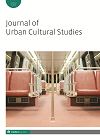-
f Liberty at the merry-go-round: Leisure, politics and municipal authority on the Paseo del Prado in Madrid, 1760–1939
- Source: Journal of Urban Cultural Studies, Volume 1, Issue 1, Mar 2014, p. 85 - 106
-
- 01 Mar 2014
Abstract
The article offers an overview of the leisure activities on the Prado Promenade in Madrid (Spain) in the nineteenth and early twentieth centuries. It argues that a historical inquiry into the regulation of urban leisure is relevant for understanding the debates that the Occupy movements of 2011–12 opened up: (1) the meaning of mass public gatherings with the purpose of spending free time; and (2) the balance of power between the state, the city and commerce intertwined in the current definition of publicness. The City Council’s decisions about the methods and the scope of its control over leisure spaces such as the Prado reveal the ambiguous nature of municipal authority as a representative of the people as well as a mediator between the state and the vendors.


